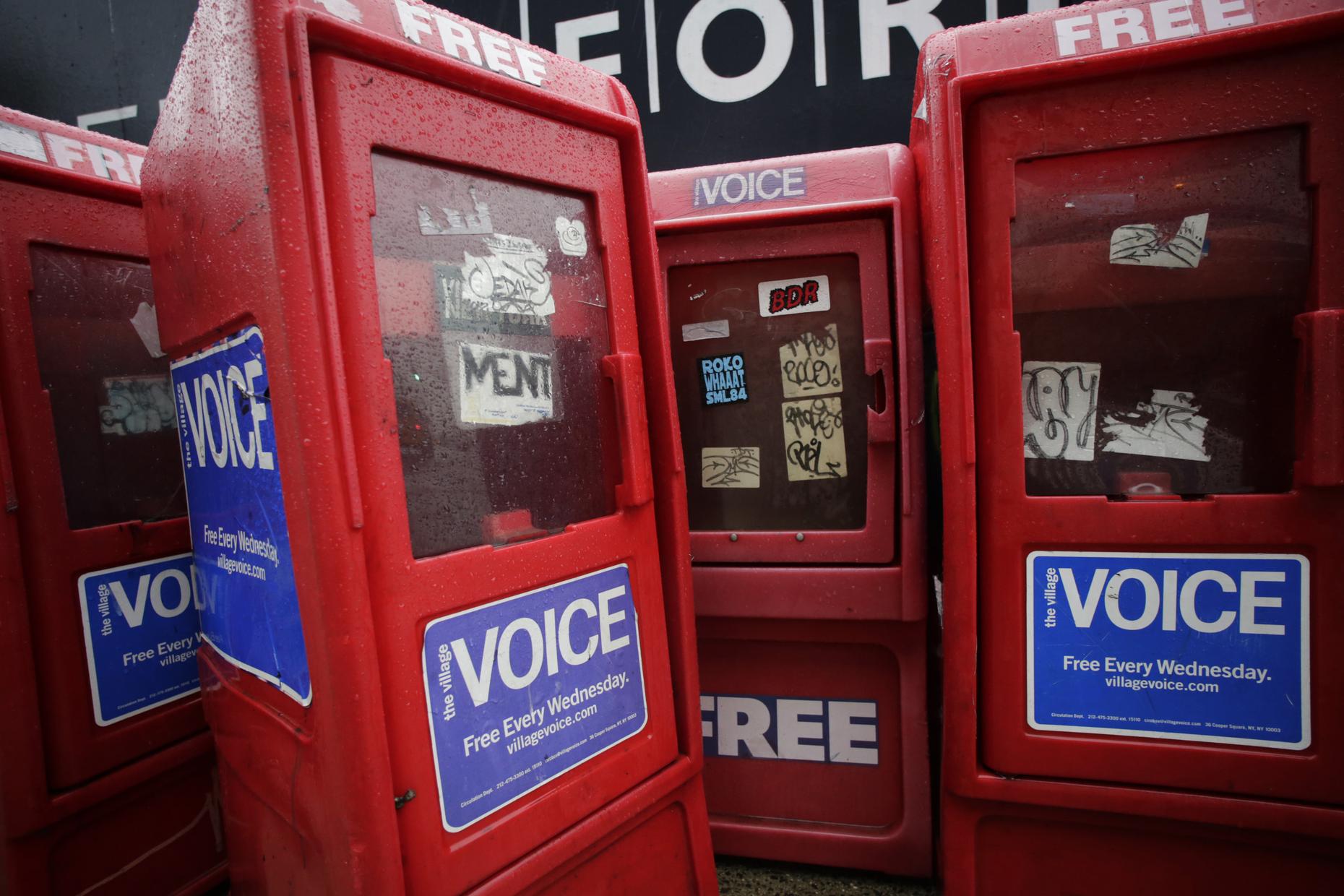Two More For The Village Voice
New podcast from On The Media and a newsletter from The Honest Broker on Tricia Romano's oral history of the famed alt-weekly.
I've written before about Tricia Romano's new book The Freaks Come Out to Write, an oral history of the alt-weekly The Village Voice, which I have seen in the wild here in Columbia at the local Barnes and Noble but nowhere else. I haven't picked it up yet, but I'm still excited to, especially after two more pieces about it came to my attention.
I loved this episode of On The Media that interviewed Romano about her book.

It's full of great background and stories that only make me want to read the book even more.
I especially love this quote, a sort of mission statement from one of the founding editors:
The Village Voice was originally conceived as a living, breathing attempt to demolish the notion that one needs to be "professional" to accomplish something in a field as purportedly technical as journalism. It was a philosophical position. We wanted to jam the gears of creeping automatism. — Dan Wolf
That quote, though he doesn't mention it outright, animates the focus of Ted Gioia's recent post for his newsletter, The Honest Broker, where he talks about outsider-ism and the death of the counterculture.
He was writing about our fragmented media landscape and the rise of publications like his own, making use of publishing platforms like Substack.
Today we still have alternative views and alternative platforms. Substack—the platform where I publish The Honest Broker—is one of them. And there are many of others. But the mainstream typically views these alternative voices with indifference, neglect, or outright hostility—often working to delegitimize them.
He makes a bit much of the vilification of Substack, which has admittedly endured some negative press over its choice around platforming Nazi and white supremacist content. While the company itself may have taken some shots due to its policies, I don't think writers on the platform, by and large, have (save for those whose loud and splashy arrivals to the platform were part of some larger media story in the first place). There were many conversations with creators on the platform when some (myself included) decided to leave the platform; it was no small decision for those who'd built their livelihoods on the platform. I had no such constraint, and I simply wanted, more than anything, to more smoothly integrate a newsletter and other writing I was doing on a blog under one umbrella.
But I think his larger point, removed from the specific focus on Substack, is spot-on: Alternative outlets, like newsletter outlets Substack and Beehiiv and individual websites like Ghost, are the spiritual successors of The Village Voice. Some of them are wildly popular, eclipsing the readership of mainstream outlets. Others, like mine, are small, personal projects, individual labors of love.
Gioia writes with a righteous indignity of being on the outside but preferring it that way.
But the audience is paying attention. They don’t need to see validation from elites—that would actually make them suspicious. Much like readers of The Village Voice in the 1960s, they trust the outsider more than the insider.
The only people who haven’t figured this out yet are the entrenched insiders. They think these pesky rivals working out of their apartments will just go away.
It’s not going to happen. The opposite is taking place.
Sure, the quality is mixed in the alt media. But if you pick wisely, you reap the benefits—that’s the single best way of replicating The Village Voice in a world where alt newspapers have disappeared. In fact, there’s a whole flourishing media ecosystem out there on podcasts and video channels and Substacks, etc.
It's that last part that gives me hope. It's trusting that amateurism can lead to great things. It's why I send these little blog posts out into the void: Maybe someone, somewhere, will deem my writing as worthy of such a wise pick.

Comments